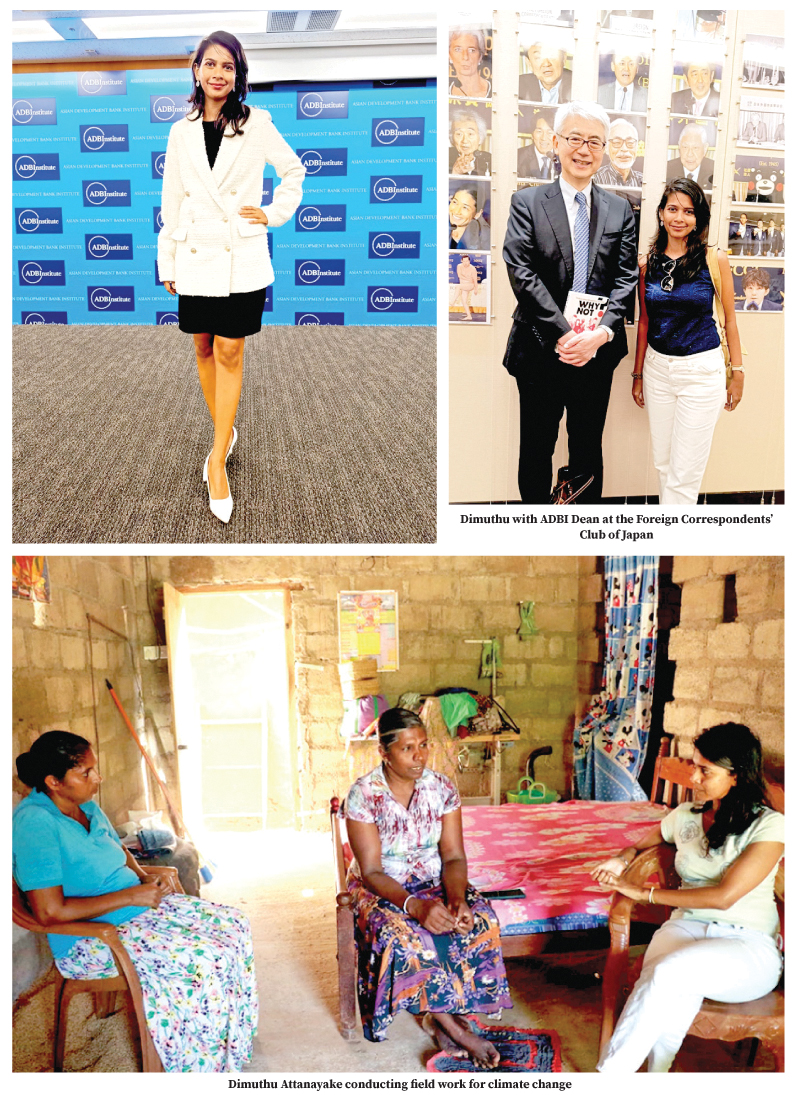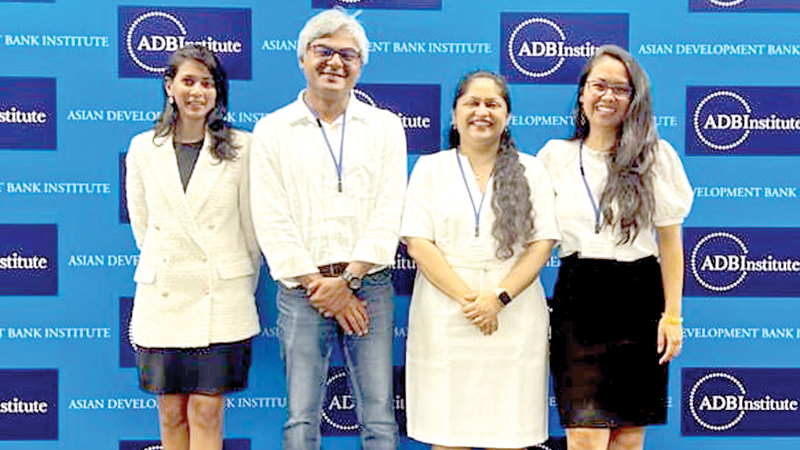 Dimuthu Attanayake, currently an independent journalist and an ex-journalist of the Sunday observer, has been recognised as one of the five winners of the Developing Asia Journalism Awards 2024.
Dimuthu Attanayake, currently an independent journalist and an ex-journalist of the Sunday observer, has been recognised as one of the five winners of the Developing Asia Journalism Awards 2024.
The award, conducted by the Asia Development Bank Institute, honours outstanding contributions in journalism that highlight significant issues in Asia and the Pacific. This year, the focus was on the intensifying impacts of climate risk—a topic that Attanayake has passionately reported on with the support of the Pulitzer Centre, bringing to light the intersection between climate change and gender-based violence in agrarian communities.
The winning stories, which were selected from more than 160 submissions from Asia and the Pacific, highlight the various ways that climate change is affecting people’s lives and means of subsistence, from human trafficking to climate-resilient farming. After reviewing the applications, the judges ensured that gender parity and geographical diversity were represented in their choices.
Attanayake’s winning article delved into the nuanced ways climate change exacerbates gender-based violence, a subject that required extensive fieldwork and meticulous research. In Sri Lanka, where data on such intersections are scarce, her work involved verifying anecdotal evidence and facing the challenges of reporting in a region with limited resources and support systems for journalists.
Speaking to Sunday Observer, Attanayake spoke on behalf of all the journalists and the hurdles that journalists have to face in the field. She highlighted the fact that journalism is undervalued in Sri Lanka, and at one point, she had to temporarily leave the field and come back again as an independent journalist. Her award-winning piece involved travelling 600 kilometres across Sri Lanka, conducting interviews, and collecting data to illustrate the direct and indirect impacts of climate change on gender violence. This rigorous process was further complicated by the need to communicate complex scientific concepts in accessible language, ensuring that the voices of those affected were accurately represented.
“I would say that journalists hold a diverse range of skills. Journalism is much more than writing; it is about extensive desk research before you go out to the field, a lot of sourcing, a lot of reporting, and sometimes even things like financing and budgeting when you have field trips. My article, which won the award, involved journalism skills like conceptualising and analysing. The article spoke about climate change and how it escalates existing gender-based violence in Sri Lanka.
Mainly in the South Asian region, when reporting on gender issues, there are no specific data sets available; therefore, it is more likely to rely on anecdotal data. I had to be tactful and empathetic while conducting interviews given the sensitivity of the topic.
It was also challenging to speak to the ground-level people regarding climate change, thus I had to simplify the topic in order to reach the affected groups”, Attanayake explained the path where she had to travel to bring this award to Sri lanka.
Moreover, she explained that she is humbled that she was recognised by a global body like the Asian Development Bank Institute because the main purpose of the work done by journalists is to make an impact on the world. “I believe that journalists possess a huge amount of knowledge at the ground level, which can influence research policies and frameworks. Journalists have their own type of research methodologies; it might not be same as what the researchers use, but we carry the verified, accountable evidence with us”, she added.







